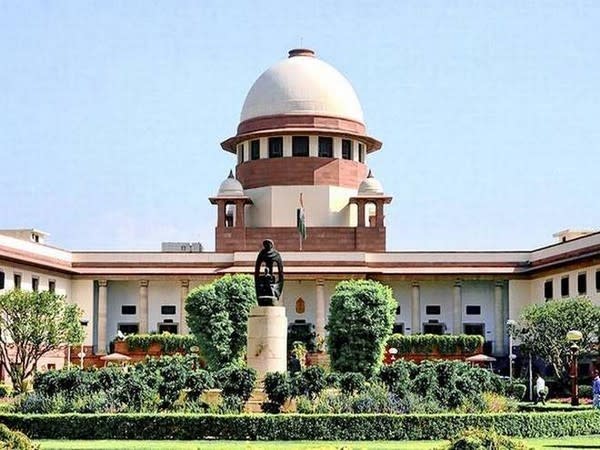PIL in SC seeks dress code relaxation for advocates during summers

By Suchitra Kalyan Mohanty
New Delhi [India], August 28 (ANI): A lawyer has filed a Public Interest Litigation (PIL) in the Supreme Court seeking relaxation in advocates dress code and seeking a direction to the Bar Council of India (BCI) to amend its rules to exempt them from wearing black coats and gowns in the summer months in the Supreme Court and the High Courts.
The lawyer, Shailendra Mani Tripathi has filed the PIL seeking appropriate directions or orders to the BCI's of each state to amend their rules and determine the months of prevailing summer for that particular state during which black coats and gowns can be exempted according to the temperature and humidity variation of that region.
"I am seeking necessary direction from the Supreme Court to the BCI to amend its rules, to exempt them from wearing black coats and gowns in the months of summer, in the Supreme Court and the High Courts," Tripathi told ANI and added that his PIL may come up for hearing before the apex court within 15 days.
Tripathi in his petition, a copy accessed by ANI, said that a comfortable working environment leads to prolificacy and efficiency in work, whereas uneasy and uncomfortable working conditions may lead to frustration, inefficacy and unproductiveness.
"Since Indian states are spread across different climatic regions, the duration of summer varies from state to state. Therefore the dress codes should be modified/exempted to make them comfortable according to the local climatic conditions," the petition filed by Tripathi said.
"Dress codes are one of the constituents of the working environment, among others and so should be comfortable and compatible with the climate. Uncomfortable dresses/uniforms may cause stress, anxiety and unease. Dress code is indeed a symbol of profession and pride, It instils dignity and decorum but striking a prudent balance between the symbolism and favourable working environment is very essential," Tripathi said in his petition.
Black blazers along with long ceremonial gowns, in parched and dry summers of some states and humid hot summers of other states in India, make the heat even more scorching for the advocates. As black colour absorbs all the wavelengths of light and reflects none, it absorbs the heat most. Therefore black coats and robes cause the body to heat up more and causes discomfort in the summer season, Tripathy said in his petition.
"Lifestyle, culture, customs and food habits, etc of any region, country or continent are consequences of its geographic location, vegetation and climate. Dresses relating to any particular region are also a consequence of the above-mentioned factors and are designed and chosen in such a manner, so as to be compatible with the climate," Tripathi said in his petition.
The dress code, adopted by our judicial system finds its origin in the colonial era, which is applied across the country, without customising it much in order to take into consideration the prevailing climatic conditions of different states, Tripathi said in his petition.
The Advocate's Act of 1961 makes it mandatory for lawyers to wear a 'Black Robe' and 'coat' with a white neckband on top of it in the continuity of the same.
The rules framed under Section 49(1)(gg) of the Advocates Act, 1961, prescribe the same dress for all the advocates irrespective of whether they are designated Senior advocates or other advocates, Tripathi said in the petition filed before the Supreme Court. (ANI)

